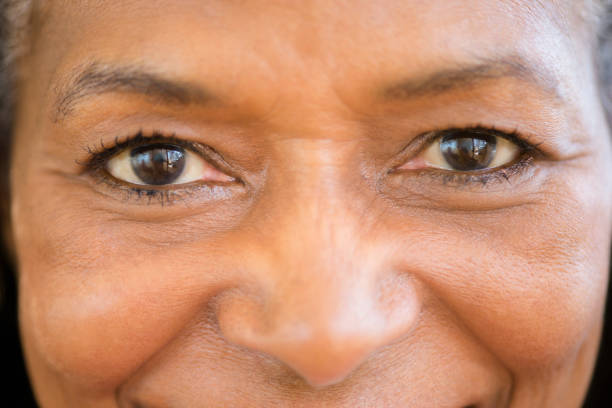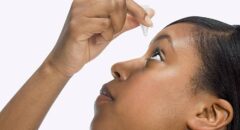
Some people may think that there’s nothing they can do to prevent poor vision as they age but that’s not completely true. While your eyes may change to some extent, you can put a plan in place to keep them healthy. Generally, this plan includes maintaining a particular lifestyle and keeping in touch with your doctor but let’s look at a few details.
1. Get Your Eyes Checked Regularly
In many cases, the symptoms of eye conditions develop slowly over time. By seeing an eye doctor regularly, they can keep track of how your vision might be changing.
As you age you’re more prone to develop conditions like cataracts, glaucoma, age-related macular degeneration (AMD), and corneal disease but they can all be managed when detected early.
Doctors recommend having your eyes checked every 2 to 4 years if you’re between the ages of 40 and 54. From 55 to 64, you should go in every 1 to 3 years. By the age of 65, you should see your eye doctor annually.
2. Manage Your Chronic Illnesses Well
Older adults have a higher chance of developing diabetes and high blood pressure as well. This is especially true for Blacks. If these diseases aren’t managed properly, they can adversely affect the eyes and sometimes cause permanent damage.
Diabetics can develop diabetic retinopathy, a condition in which high blood sugar levels affect the retina. When left untreated, it usually leads to blindness. Unchecked high blood pressure can damage the blood vessels that lead to the eye and cause blurry vision.
RELATED: How To Keep Your Vision From Fading As You Age
3. Eat A Healthy Diet
Studies show that having a diet that’s high in certain nutrients can do wonders for maintaining healthy vision. You should look out for foods that contain high levels of omega-3 fatty acids, zinc, lutein, and zeaxanthin, as well as Vitamins A, C, and E.
Some of the foods that you can include in your diet are salmon, oranges, kale, black-eyed peas, carrots, cantaloupes, sweet potatoes, spinach, kiwis, strawberries, papayas, red bell peppers, broccoli, and squash.
4. Get Regular Exercise
When it comes to your vision, the benefits of regular exercise are two-fold. Being physically active increases blood flow all around the body, which includes the eyes. Good blood flow to the eyes typically means improved vision overall. Exercising also helps you








